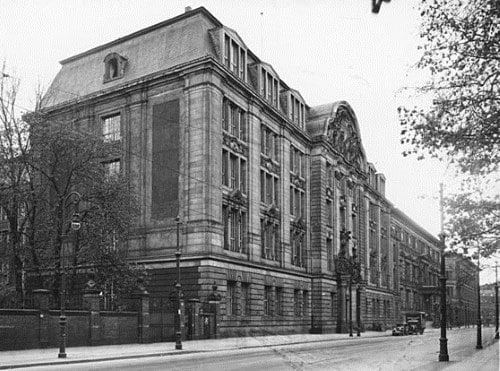
Palestine Post
13.07.1938
DIFFICULTIES AT THE EVIAN CONFERENCE
No country ready for mass immigration
EVIAN, July 7 (Air Mail). —
As the work of the Conference on Refugees takes shape so the difficulties of the problem become the more apparent.
The public proceedings today included a further batch of general declarations of what had been done in the past — from Canada and Australia within the Empire, from Belgium and Holland as neighbour States, from Brazil and Argentina as representatives of the immigration field of Latin America.
It cannot be said that any of these brought a tangible contribution to solving the problem of what to do with the refugees.
Neither Canada nor Australia has room for an increase of indigent urban workers, and the refugee agriculturist with capital, the only refugee really welcome to the receiving State, has so far scarcely figured in the picture.
Individual Case
All that can be gleaned is that the various countries are prepared to consider individual cases within the practice of their immigration laws.
Each State is to make to a technical subcommittee presided over by Judge Hansson (Norway) a declaration of the numbers and types of refugees which it is prepared to take.
Those countries that have had experience of mass settlement have little to say in its favour. The expense of settling a single family varies, but is considered prohibitive. The supposition that Canada and Australia have vast open spaces waiting to be colonized, though fallacious, is widely held here.
The United States has confined its measure of assistance in the matter of immigration to its legal quota, and that quota is not to be taken as favouring especially indigent Jewish refugees.
British View Criticized
Inquiry shows that the possibilities in Africa, referred to yesterday by Lord Winterton in his speech, are restricted, and can contribute only in a limited sense to a solution of this vast problem.
A commission is investigating the possibilities of settlement in Uganda.
The fact that Palestine was not mentioned in Lord Winterton’s speech gave rise to some criticism in Jewish quarters. Irritation was also shown because Lord Winterton stated that the work of the conference must be strictly confined to refugees from Germany and Austria. But it is felt that to extend the scope of the conference to include the Rumanian, Hungrian, and Polish Jews would be hopelessly to overload it.
Several voluntary organizations have now presented their memoranda to the conference, and these will be sifted and collated by the appropriate sub-committee, presided over by Colonel T. W. White (Australia), in the search for a common measure as the basis for a recommendation.
If the Government declarations seem to keep to a studious moderation those of the voluntary organizations are not backward in a comprehensive presentation of their needs. The most useful step that could be taken int the opinion of the voluntary organizations would he to stop the flow of refugees at the source and compel their humanitarian treatment.
Since Germany has sent to the conference (in an indirect but none the less authentic way) a declaration with specific demands for the reception by other countries of 40,000 more refugees before the autumn, it cannot be said that the atmosphere for a strong forward policy by the Conference is at all propitious.
ARAB OPINION
The complete failure of the Refugees Conference at Evian is reported by “Ad Difa’a” which stated that the delegates delivered many speeches sympathising with Jewish distress, but the gates of all Democratic countries remained closed to clamouring refugees.
It was stated that Palestine could solve a part of the problem but if the area of this country were compared with the vast territories of the States concerned, or with their Colonies, then it would be dwarfed.
“The failure at Evian is a strong argument for the Arabs,” the paper concluded.
“If the powerful and wealthy Governments have refused to accept refugees, how can they ask this tiny corner of Palestine to take in even one immigrant? Have they no conscience?”
Die Frage, die die arabische Zeitung Ad Difa’a damals gegen Ende der Konferenz von Evian 1938 stellte, sollte rund zehn Jahre später weitgehend ignoriert werden, als die Vereinten Nationen die Teilung Palästinas empfohlen haben:
Wie kann man Palästina auch nur einen einzigen (jüdischen) Einwanderer zumuten, wenn die reichen und mächtigen Nationen in Evian gerade zeigen, dass sie eine Einwanderung ablehnen?
— Schlesinger
Hervorhebungen nicht im Original
Photo: Evian: Wikimedia gemeinfrei / public domain
Quelle: Archiv


